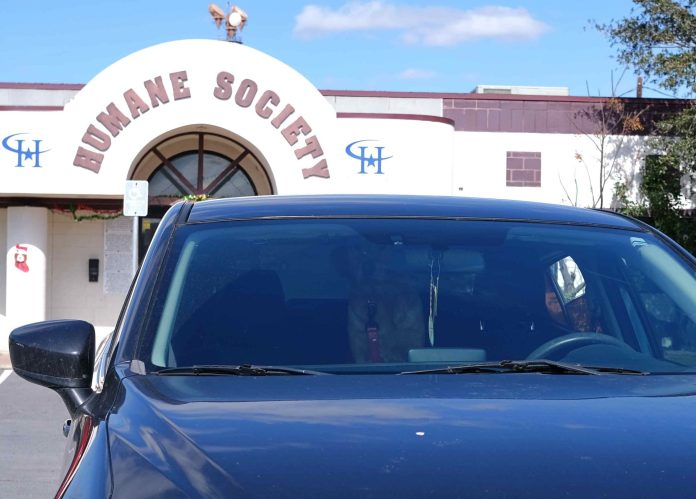
|
Only have a minute? Listen instead
Getting your Trinity Audio player ready...
|
HARLINGEN — After more than 30 years, city officials are taking over the Harlingen animal shelter’s operations, setting aside more than $365,000 to cover its payroll while planning on expenses to climb.
Earlier this week, commissioners agreed to pull $365,937 from the city’s general fund budget to hire an 11-member staff to run the city-owned shelter, with Commissioner Frank Morales casting the dissenting vote.
Officials are taking steps to run the shelter after Jan. 18, when the Rio Grande Valley Humane Society’s $400,000 annual contract expires, a month after they terminated the agreement, arguing the “no-kill” agency had breached its contract when it refused to accept Harlingen residents’ pets along with some animal control officers’ intake requests.
Meanwhile, the city’s stray population has climbed “out of hand,” Commissioner Rene Perez said in an earlier interview.
In a presentation during Wednesday’s meeting, Shannon Harvill, the city’s environmental health director, requested commissioners fund the shelter’s payroll after officials failed to receive proposals to run the operation after contacting the Laguna Madre Humane Society, Brownsville Animal Defense, the Palm Valley Humane Society and No Kill RGV.
Under her proposal, an animal shelter manager, at a proposed annual salary of $53,910, would help run the operation.
The manager would be charged with “observation, care, treatment and euthanasia of dogs, cats and other wild and domestic animals,” a job description states. “General supervision is received from the environmental health director who evaluates performance based on result.”
Officials are also planning to hire a shelter supervisor at $45,195; an animal adoption coordinator at $36,968; an administrative secretary at $38,448; four full-time animal care technicians, each at $34,201; and three part-time animal care technicians at $18,202.
During discussion, Morales and Commissioner Michael Mezmar said they expected the shelter’s operational costs to climb with veterinarian bills, vaccines and food.
“This is going to be double or quadruple the cost of the $400,000 that we were giving out to the Humane Society,” Morales told commissioners. “We’re definitely looking at three times the cost.”
In response, City Manager Gabriel Gonzalez noted the Harlingen Community Improvement Board has set aside $180,000 to fund spay and neutering services, while Mayor Norma Sepulveda proposed requesting the agency bump up that amount to $200,000.
Meanwhile, some veterinarians have volunteered to offer services, she said.
During her presentation, Harvill, who had served as the shelter’s executive director nearly 20 years ago, said she planned to find homes for its dogs and cats.
“We want to do our very, very best to get these animals adopted, sent to rescue, fostered,” she told commissioners.
Amid debate, Morales claimed residents’ pets were going to “overrun” the shelter.
“One of the things that will happen is that you’re going to be overrun with people giving out their pets and you’re going to have to take 100%,” he told commissioners.
But Gonzalez said the shelter would limit its services to Harlingen residents.
The city’s operation of the shelter is coming months after officials began requesting the Rio Grande Valley Humane Society present detailed financial information to determine whether it’s used the city’s $400,000 annual payment to help Harlingen residents.
When the Humane Society presented some information weeks after an October deadline, officials questioned whether nearly $1 million was spent on payroll.
Since 1988, the Rio Grande Valley Humane Society, under its former name, the Harlingen Humane Society, had operated the shelter.
About four years ago, the Humane Society, under past Executive Director Luis Quintanilla and a revamped board of directors, turned the shelter into a “no-kill” operation, slashing its numbers of euthanasia procedures.



